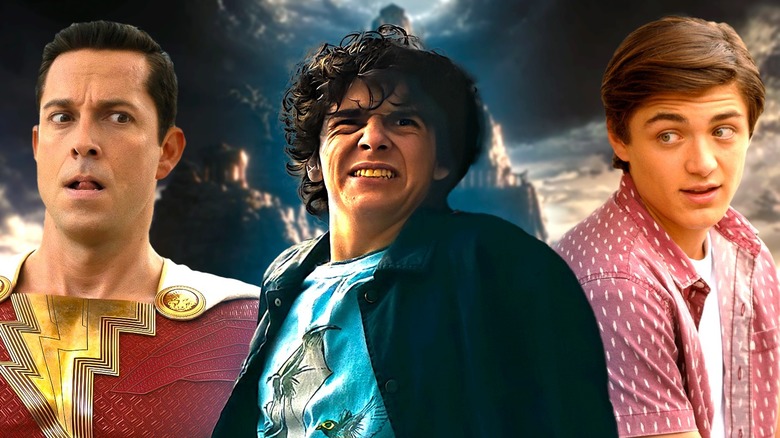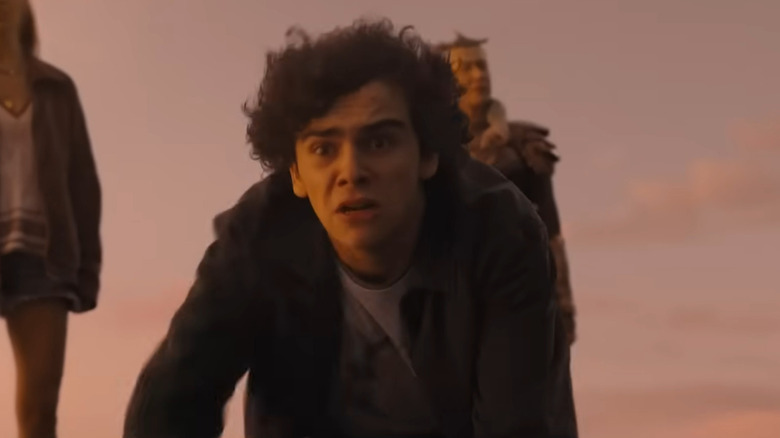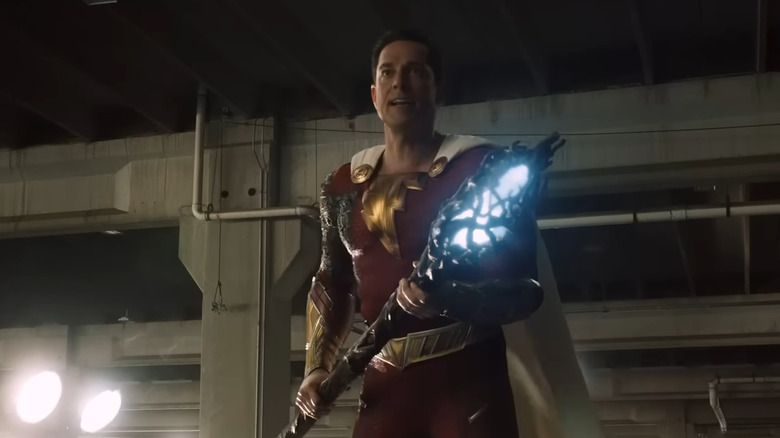Shazam 2 Should've Focused On Freddy, Because Billy Batson And Shazam Are Polar Opposites Which Destroys The Movie
"Shazam! Fury of the Gods" cast the wrong star. Cool it on the pitchforks, skippy, this isn't a Zachary Levi hate piece. The DCEU (soon-to-be DCU) is now two movies deep with its hero who can't be called Captain Marvel, and — despite the heartfelt foster family narrative — there's a jarring disconnect that has formed deep roots in the one place it cannot be allowed to fester.
The issue? Billy Batson (Asher Angel) and Shazam (Levi) are not the same person.
Yes, yes, obviously they're different people: Angel is a young adult and Levi is strolling casually over the hill. But in the film, they're supposed to be portraying different aspects of the same character. As Billy, Angel is a traumatized teenager whose biological parents abandoned him. He's emotionally reclusive unless lashing out in anger, courtesy of his biting wit. In a single word, Angel's Billy is jaded. Conversely, Levi's Shazam is a carefree goofball whose only problem is that Wonder Woman (Gal Gadot) won't date him. As Shazam, Levi is this bumbling, joking, flossing mountain of muscle and magic. He's a chatterbox primed with pop culture references: in every conceivable way, the antithesis of Angel's Billy.
Sure, Shazam is Billy with a magical makeover but that's precisely where their differences should stop, because they are not believable as separate aspects of the same soul. Neither performance is inherently wrong, but they're definitely wrong as a unit. Ironically, it seems like "Shazam! Fury of the Gods" clocked this imbalance during production, but in a weird way — because it offers a half-solution by giving Freddy Freeman (Jack Dylan Grazer) more screen time.
Sadly, rather than fixing the "Shazam" sequel, Freddy's amplification only shines a light on how much more Billy's nerdy foster brother could've been utilized.
Shazam 2 features a not-so-secret deuteragonist
To add a little bit of context, Freddy and the rest of Billy's foster siblings are gifted a fraction of Shazam's power at the end of the first movie, and like Billy, they transform into adult-shaped-children while harnessing their abilities. In "Shazam! Fury of the Gods," Freddy names his super identity Captain Every-Power (Adam Brody). Unlike Kid-Billy and Super-Billy, Captain Every-Power actually looks like an adult variant of his younger, regular form.
That's not all. Unlike the Shazam disparity, Freddy and Captain Every-Power share a singular, hyperactive personality. When one aspect shifts to the other, there's no disconnect between them. It's obviously the same character. Freddy's nerves are diminished by the confidence that well-fitted spandex provides but the emotional core is unchanged. While Grazer gets notably more screen time than Brody, the pair shift often enough to make this unity apparent.
Grazer gets more screen time than Asher Angel, too. As Billy, Angel gets maybe three minutes to impress his abandonment issues on the audience before Levi takes over. The script tries to prove that Levi's Billy is still concerned about his foster family falling apart, but it doesn't land. He's far more impassioned about his Wonder Woman dream (it's a dumb subplot, don't ask). In comparison, Grazer's around so much that he gets a romance subplot.
More interesting still, Grazer's screen time is comparable to Levi's own. The movie never really sits with the titular hero longer than it takes to punch a dragon or reference "Fast & Furious." Conversely, Freddy is permitted to stew in his problems and then face them in a meaningful, substantiative way. Is he sometimes a cheesy, unoriginal twerp? Sure! But Grazer wears it well which, in this very specific situation, is meant to be a compliment.
Shazam's mismatched halves don't make a whole
Freddy's increased role draws to mind two simultaneous issues, the first being that "Shazam! Fury of the Gods" does not value Billy's emotional arc. In comparison to Freddy's journey from ironic bravery to genuine heroism, Billy's acceptance of dynamic familial change is both painfully fragile and woefully underdeveloped.
The second, and more egregious, issue: Grazer's Freddy makes more sense as a counterpart to Levi's Shazam than Angel's Billy does.
Angel brought a sense of reality to "Shazam." He grounded the fantasy in our world with a nuanced approach to a difficult role. But let's be real, if either Angel or Levi were to get the boot, it wouldn't be Levi. And it wasn't. Remember, Angel barely features in the sequel. Instead, "Shazam! Fury of the Gods" attempts to balance Freddy and Shazam as if these two aspects of two separate characters could unite and form one cohesive whole.
But it doesn't work that way. Rather, it proves how unprepared the writers were to blend Billy's reality with Shazam's fantasy. The disconnect was less obvious in the first movie because it was acceptable for Levi's man-child to be aggressively overexcited. After all, he was a broken kid who had literally just been handed the keys to deific power.
That novelty is gone now, for both the character and the audience. The movie more or less acknowledges this, too, with Mary Bromfield (Grace Caroline Currey) admonishing Billy for holding onto the past. Which, weirdly, should have been directed at the writers, instead. Let Shazam grow or offer Freddy the reins -– this middle ground is just messy and doesn't bode well for one of the few heroes who might stick around in Gunn's rebooted DC Universe.


